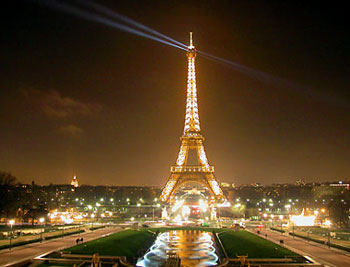Choose France for your higher education

Millions have already made that choice. Right now, more than 260,000 international students—12% of the nation’s postsecondary enrollment— attend universities and other institutions of higher education in France. In fact, France hosts more international students than any other country except the United States and the United Kingdom.
Reap the benefit of France’s long tradition of scientific research and technological innovation France owes its economic success to its research capacity and to its achievements in the fields of space, transportation, electronics, telecommunications, chemistry, biotechnology, health, and mathematics. The establishment of a new network of research and higher education clusters reaffirms the country’s determination to maintain its high profile as a knowledge economy. Known as PRES (for pôles de recherche et d’enseignement supérieur), the clusters represent a new way for France’s academic and scientific communities to cooperate and share knowledge. France has the fifth-largest economy in the world and welcomes foreign investment.
Be a part of one of the world’s most effective educational systems Imbued with the tradition of a thousand years of scholarship, France’s diversified network of more than 3,500 institutions of higher learning, both public and private, and its internationally renowned research centers deliver top-notch educational programs. The network comprises 83 universities, 205 engineering schools, 200 schools of business and management, 120 public art schools, and 20 schools of architecture. In addition, more than 3,000 specialized schools and institutes provide instruction in specific sectors, such as social work, paramedical functions, tourism, sports and physical education, fashion, and design. Many secondary schools (lycées) offer postsecondary programs that prepare students for the entrance examinations for the Grandes écoles (CPGE) or that lead to a BTS (brevet de technicien spécialisé), a 2-year technical certificate.
Count on a quality education
In 2009, France devoted €27.6 billion—1.4% of the nation’s gross domestic product—to higher education. The magnitude of the nation’s commitment to sound education is your guarantee of the value and integrity of the degree you will earn. France’s central government defrays a very large share of the true cost of education at public institutions between €8,000 and €14,000 per student per year— thereby reducing the student’s tuition burden. In fact, tuition levels at France’s public institutions are among the lowest in the world—making their high- quality degrees a remarkable value.
France’s universities and other educational institutions do not distinguish between international students and French students. Both groups face identical admission and tuition requirements; both receive the same degrees.
Quality of life
Students enjoy lower prices and special assistance in many aspects of daily life—advantages that can markedly improve their quality of life. The health care system is modern and accessible; public transportation is efficient and affordable; rent subsidies are widely available. In addition to access to low-cost restaurants, students pay discounted prices at museums and athletic events. Outside France’s vibrant cities, a wide variety of landscapes, from sparkling seacoasts to majestic mountain ranges, offer an intriguing palette of recreational possibilities.
Unrivaled cultural dynamism
Literature, films, museums, theaters, opera, cafés, and the national flair for food and fashion are a part of everyday life, evidence of the emphasis that the French place on culture. Throughout the year, but especially in summer, the nation celebrates its own culture and those of other nations in a parade of local and international events.
At the crossroads of Europe
Bordered by nine different countries, France is the ideal place from which to discover Europe. The proximity of Amsterdam, London, Berlin, Brussels, Barcelona, Munich, Milan, and other great cities means many opportunities to explore Europe—on weekends or during longer breaks in the academic calendar.
Because France is an integral part of economic, social, and political Europe, many of the country’s educational institutions have included a European perspective in their programs. A course on Europeor an internship with a European firm is a great way to broaden your French experience to embrace the
reality of Europe.
Talk to the world
French is spoken by 220 million people around the world. It is the official language of 32 countries on 5 continents. The three capitals of the European Union—Brussels, Luxembourg, and Strasbourg—are French speaking cities. In EU institutions, French, German, and English are the working languages. French is also one of the six working languages of the United Nations, one of the two official languages of the International Olympic Committee, and one of the official languages of the African Union.
source:Choose France -2011,CampusFrance.org, accessed 20 July 2011
Posted on: 2011-07-29































